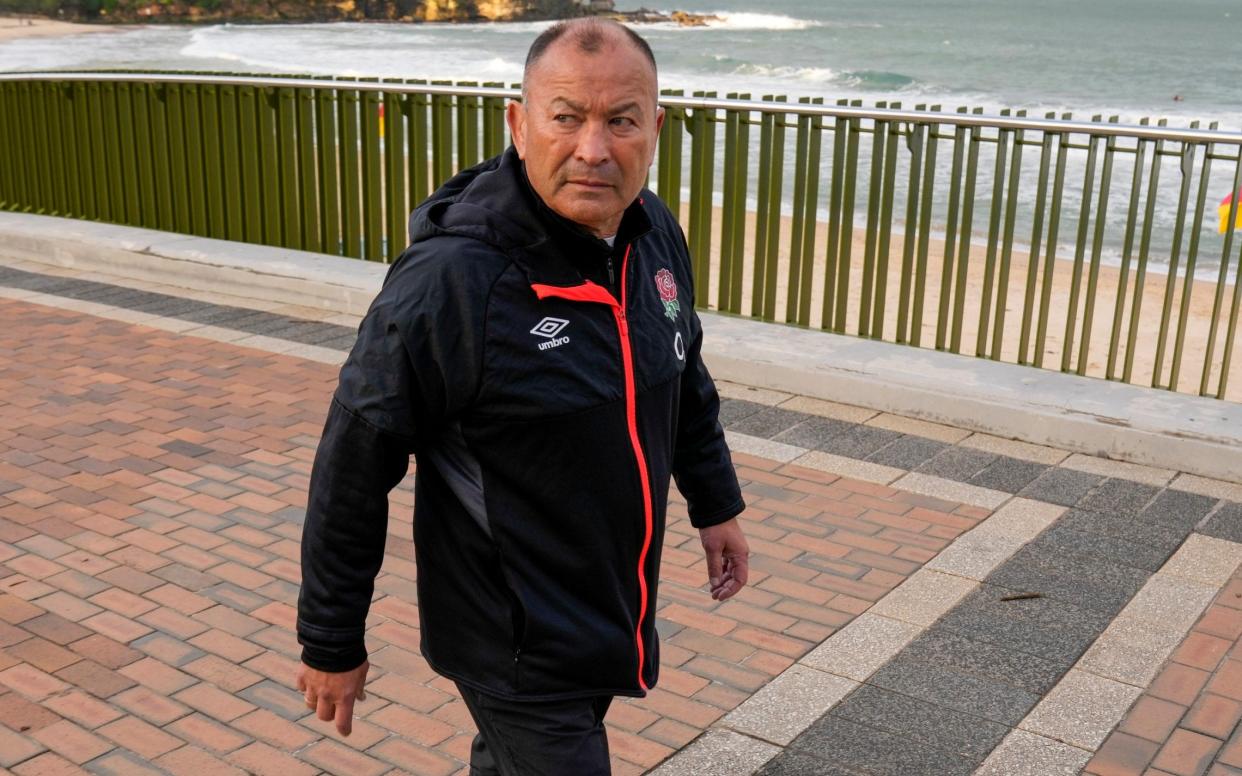Eddie Jones slapped down by RFU over private schools criticism

The Rugby Football Union have slapped down Eddie Jones over his scathing comments towards the role of public schools in English rugby.
Chief executive Bill Sweeney spoke to the England head coach on Sunday to remind Jones of the RFU's position on “the valued role the independent sector plays in the player pathway”.
The England head coach claimed players who are educated privately struggle to become leaders on the field of play, adding the system needs to be "blown up" if there is to be any meaningful change.
The RFU responded with a statement that was released on Tuesday: "RFU CEO, Bill Sweeney, spoke to the England head coach, Eddie Jones, on Sunday and confirmed the RFU position on the valued role the independent sector plays in the player pathway.
“The RFU is hugely appreciative and supportive of the role both the independent and state school sectors play in introducing boys and girls to our sport and in our player pathway. A collaborative approach and strong partnerships within the education sector ensure players are supported and offered opportunities to develop at all schools.
“The most recent England men’s squad contained players who have benefited from time within independent schools, including Maro Itoje and Henry Arundell, as well as many from the state sector including, Jonny Hill and Courtney Lawes.
“As a union, we are always working to broaden the appeal and accessibility of rugby union to boys and girls from a wide range of backgrounds.”
Eight of England’s starting XV against Australia in their most recent Test match were privately educated, while their whole U18s squad are attached to public schools.
However, England's squad for the 2019 World Cup, when they reached the final before losing to South Africa, was lauded for its diversity and was regarded as a success story in the development of the sport within England.
But Jones told the i newspaper on Sunday that the current system needs changing: "If you have only been in a system where you get to 15, you have a bit of rugby ability and then go to Harrow.
"Then for two years you do nothing but play rugby, everything's done for you. That's the reality. You have this closeted life.
"When things go to crap on the field who's going to lead because these blokes have never had experience of it? I see that as a big thing.
"When we are on the front foot we are the best in the world. When we are not on the front foot our ability to find a way to win, our resolve, is not as it should be."

Jones’ comments caused outrage among public school's officials with Independent Schools Council chairman Barnaby Lenon leading an angry attack on the Australian.
“Where does he think rugby players are going to come from given that a low proportion of state schools offer rugby?” said the former headmaster at Harrow.
“Rather than whinge about the schools that have trained up such a high proportion of his best players, we should focus on what the rugby authorities might be doing to develop individual pupils who are very good at rugby, many of whom can be identified by the age of 14.”
Neil Rollings, who chairs Padsis, an influential body for directors of sport in independent schools, says that rugby in public schools is dwindling and in fact in need of further support, in stark contrast to Jones' beliefs.
The rise of football inside independent schools has impacted on rugby, where the contact form of the game is also no longer compulsory.
“There will be no school in the country that makes contact rugby compulsory and it will be illegal to do that,” says Rollings.
Although the vast majority of directors of sport in school still have direct past experience of playing rugby, the drop-off in numbers is especially evident between Years 10 and 12. Rollings says fewer boys are playing rugby than at any point in the last 200 years and that there is a need both to offer different formats, including touch rugby and other variants with less contact, but also proactively state benefits which stretch far behind performance or fitness to teamship and camaraderie.
“It’s place as the dominant game of the autumn term, played by a majority of boys, is under growing threat,” he says. “The game won’t die - it will just have a different identity both in clubs and schools. The ‘risk’ lobby has been mobilised. What the game hasn’t effectively done is mobilise the ‘benefit’ lobby to counter that. The benefits of the game game - widely, though tacitly understood by the rugby family - have been articulated less effectively. Rugby, in my view, has been the ultimate team game. But, once you have got choice, the game has to make itself attractive in order to return a critical mass of players.”

 Yahoo Movies
Yahoo Movies 
